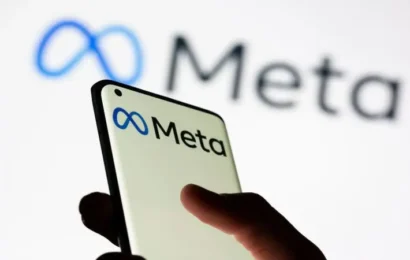In a move that has sent ripples across international diplomacy, French President Emmanuel Macron announced that France will formally recognize the State of Palestine this September at the United Nations General Assembly. The declaration positions France as the first G7 nation to take such a step, marking a significant shift in Western policy toward the Israeli-Palestinian conflict and igniting both praise and condemnation from global leaders.
This decision comes at a time of heightened geopolitical tension, with the war in Gaza continuing to devastate civilian populations and peace negotiations stalled. Macron’s announcement is not only a symbolic gesture but also a strategic recalibration of France’s role in Middle Eastern diplomacy.
A Historic Declaration
Macron’s statement was delivered during a press briefing in Paris, where he emphasized the urgency of recognizing Palestinian statehood as a pathway to peace. “France cannot remain passive while the region burns,” he said. “We believe that recognizing Palestine is a necessary step toward a two-state solution and long-term stability.”
The timing of the announcement is deliberate. France plans to make the recognition official during the UN General Assembly in September, a forum where global leaders convene to address pressing international issues. Macron’s move is expected to galvanize support among European and Latin American nations, many of which have already expressed solidarity with the Palestinian cause.
Global Reactions: Applause and Alarm
The response to France’s decision has been sharply divided.
Israel swiftly condemned the announcement, with Prime Minister Benjamin Netanyahu calling it “a betrayal of democratic values and a reward for terrorism.” Israeli officials argue that unilateral recognition undermines negotiations and emboldens extremist factions within Palestinian territories.
The United States, traditionally Israel’s staunchest ally, also expressed disapproval. A spokesperson for the State Department stated that the Biden administration “continues to support direct negotiations between the parties” and does not endorse unilateral recognition.
In contrast, Arab nations and several Latin American countries hailed Macron’s decision as courageous and overdue. Saudi Arabia, Jordan, and Egypt issued statements praising France for “standing on the right side of history.” In Latin America, leaders from Chile, Colombia, and Brazil voiced support, with Brazilian President Luiz Inácio Lula da Silva calling it “a moral imperative.”
The Latin American Connection
Macron’s pivot toward Latin America is no coincidence. In recent months, France has intensified diplomatic outreach to the region, seeking to build alliances on climate change, trade, and human rights. Latin America has long been sympathetic to the Palestinian cause, with several countries—such as Argentina, Bolivia, and Venezuela—having recognized Palestine years ago.
By aligning with Latin American sentiment, Macron is not only amplifying France’s global influence but also challenging the dominance of U.S. foreign policy in the region. Analysts suggest that this could signal a broader realignment of international coalitions, especially as emerging economies seek greater autonomy in global affairs.
Domestic Politics and Macron’s Legacy
At home, Macron’s decision has sparked intense debate. Supporters argue that it reflects France’s commitment to human rights and international law. Critics, however, accuse the president of using foreign policy to distract from domestic challenges, including economic stagnation and rising social unrest.
Macron’s approval ratings have fluctuated in recent months, and some political observers believe the Palestinian recognition could be a calculated move to bolster his legacy. By taking a bold stance on a contentious issue, Macron positions himself as a principled leader willing to defy convention.
The Gaza Crisis: A Catalyst for Change
The ongoing war in Gaza has been a major catalyst for France’s decision. Since October 2024, the conflict has claimed thousands of lives, displaced millions, and drawn widespread condemnation from humanitarian organizations. Macron has repeatedly called for a ceasefire and increased humanitarian aid, but his appeals have largely fallen on deaf ears.
The recognition of Palestinian statehood is seen by many as a direct response to the humanitarian crisis. French officials argue that without political recognition, Palestinians will remain trapped in a cycle of violence and marginalization.
Trump’s Shadow and the U.S. Election
Adding another layer of complexity is the looming U.S. presidential election, where former President Donald Trump is once again a central figure. Trump has criticized Macron’s decision, calling it “reckless and misguided.” He accused France of “undermining peace efforts” and suggested that such actions could jeopardize U.S.-European relations.
Macron, however, appears unfazed. In a recent interview, he stated, “France must act according to its values, not according to the whims of foreign leaders.” The remark is widely interpreted as a rebuke of Trump’s influence and a reaffirmation of France’s independent foreign policy.
Implications for the Two-State Solution
The recognition of Palestinian statehood by a major Western power could breathe new life into the long-stalled two-state solution. For decades, peace talks have faltered due to disagreements over borders, security, and the status of Jerusalem. France’s move may pressure other nations to take a more active role in resolving the conflict.
However, the path forward remains fraught with challenges. The Palestinian territories are politically divided, with Fatah controlling the West Bank and Hamas ruling Gaza. Internal reconciliation is essential for any meaningful progress, and France has pledged to support efforts toward Palestinian unity.
A New Chapter in Global Diplomacy
France’s recognition of Palestine marks a turning point in global diplomacy. It challenges the status quo, redefines alliances, and elevates the Palestinian issue to the forefront of international discourse. Whether it leads to tangible change remains to be seen, but one thing is clear: Macron has reshaped the conversation.
As the world prepares for the UN General Assembly in September, all eyes will be on France. Will other nations follow suit? Will the recognition spark renewed peace efforts? Or will it deepen divisions in an already fractured region?
Whatever the outcome, Macron’s decision has already made history.















